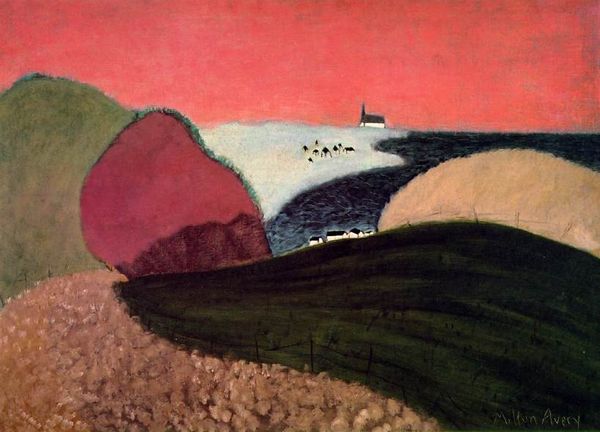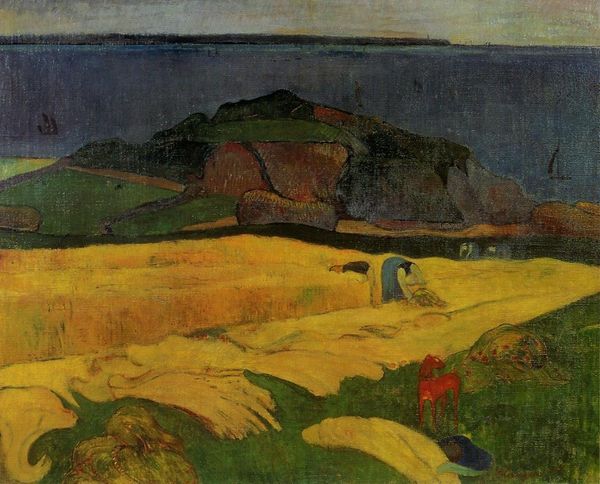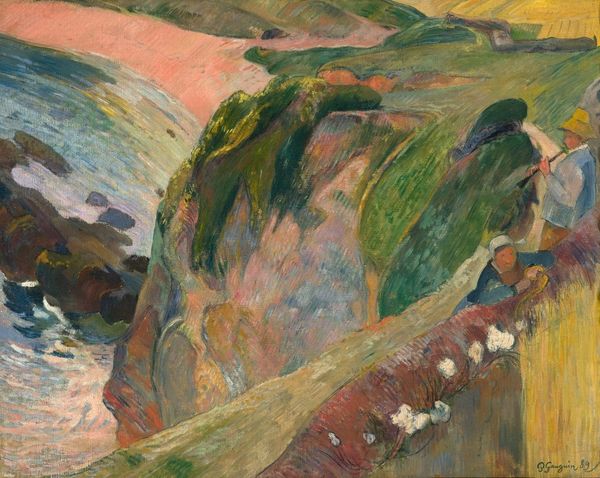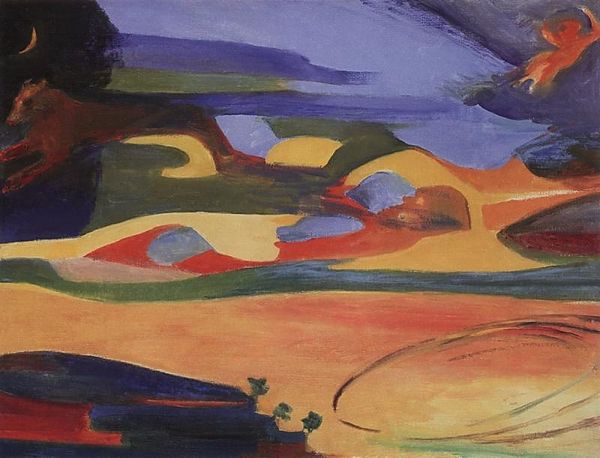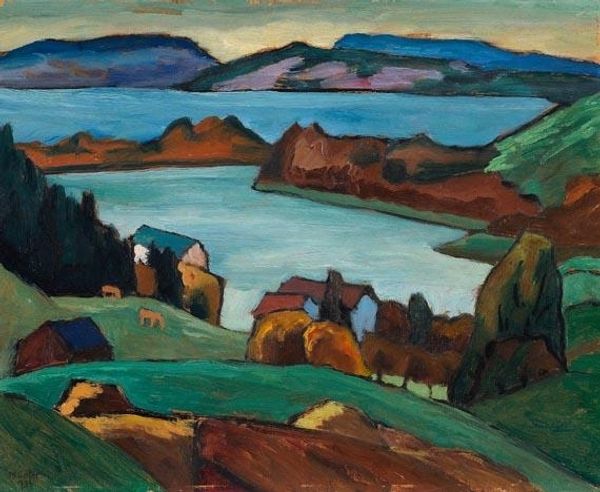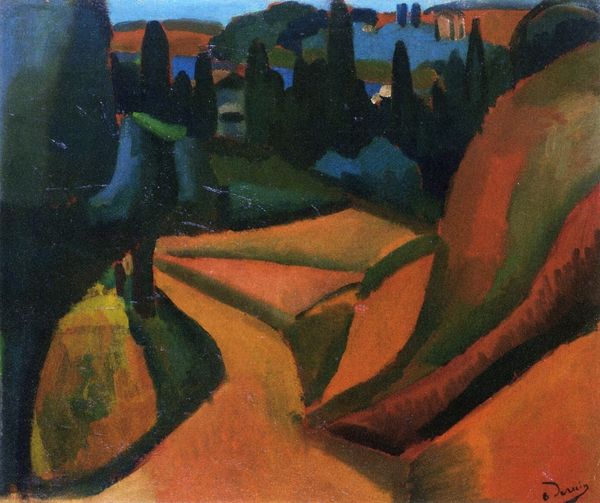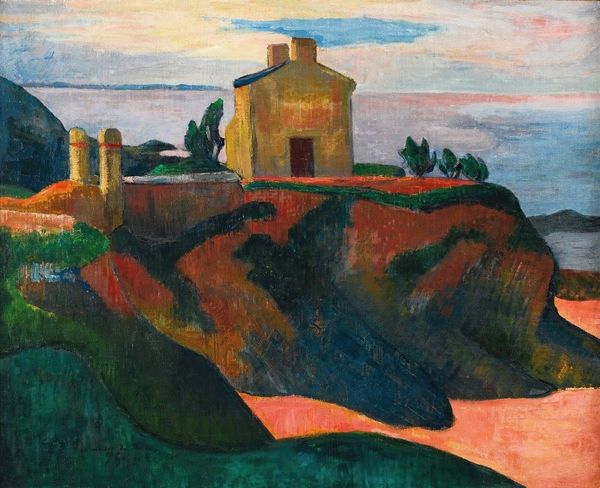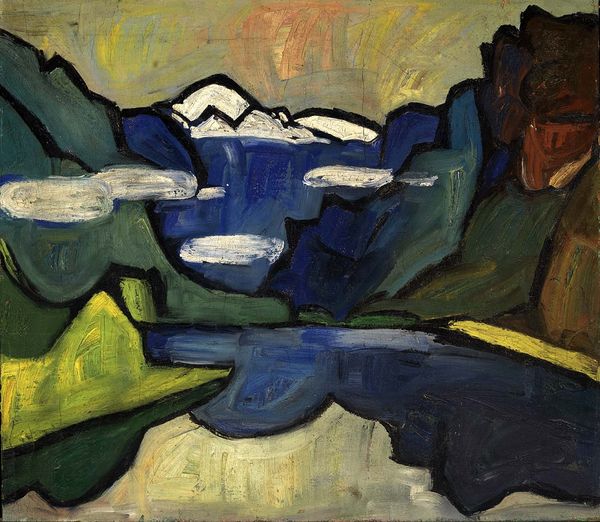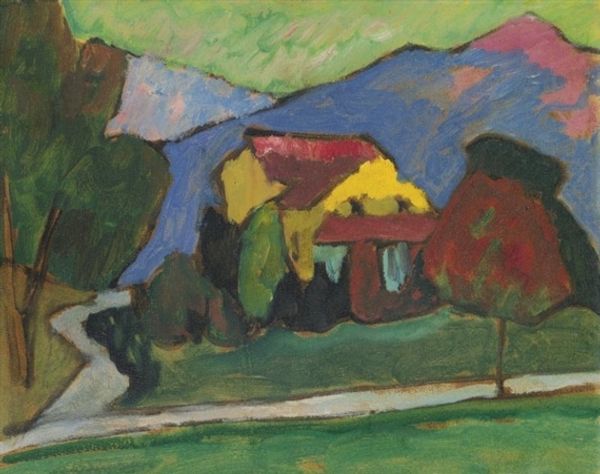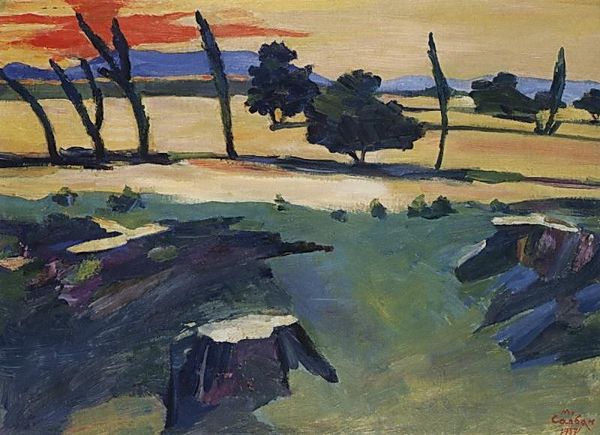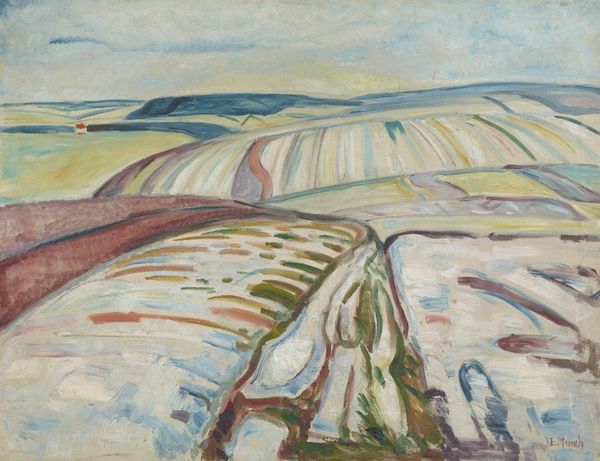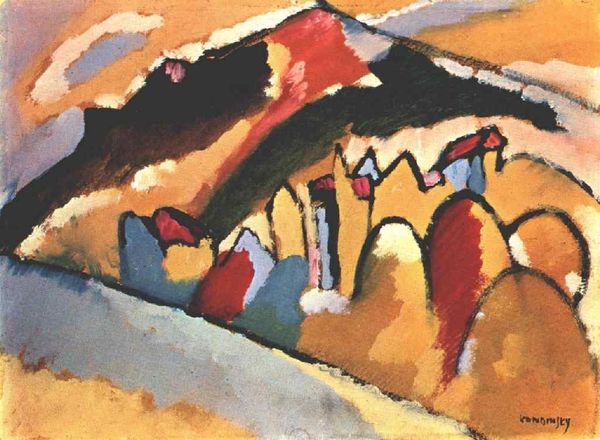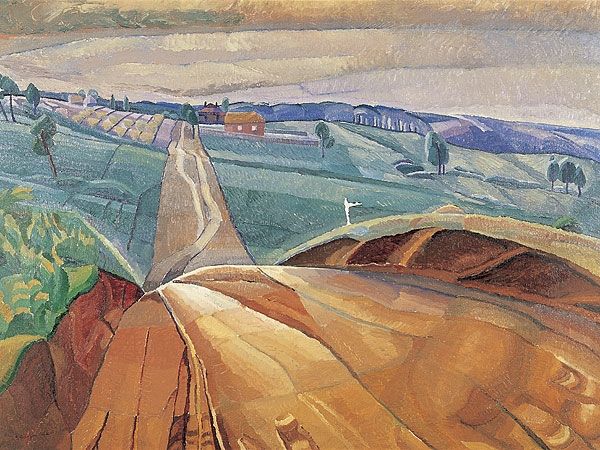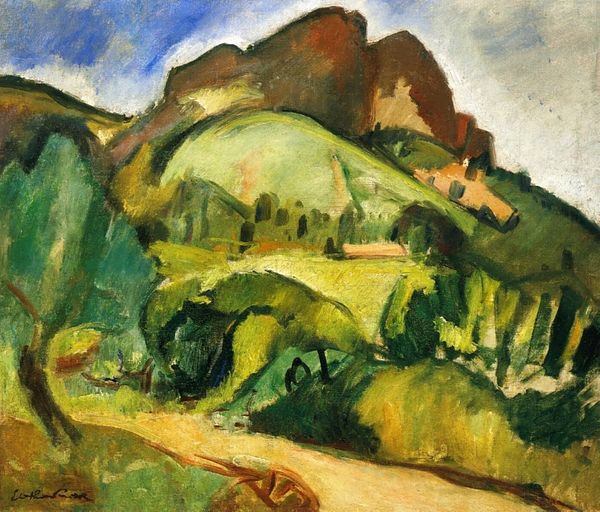
Copyright: Public domain
Curator: Looking at Henri Le Fauconnier’s “Ploumanac'h,” created around 1908, what strikes you first? Editor: The sheer weightiness of it all! Those forms feel so grounded and almost monumental despite the modest scale of the piece, like I'm observing colossal geologic forms from up close. Curator: Indeed. Le Fauconnier, operating within post-impressionistic modes, employs a thick application of oil paint to delineate those massive landforms. It moves towards abstraction, focusing not on a direct representation but on the fundamental shapes and construction of the landscape itself. Consider also that, by moving away from realistic depictions, he challenged academic art norms which greatly emphasized faithful portrayals of scenes from nature. Editor: And consider the laborious process of oil painting, especially with such impasto. There’s a physicality and almost sculptural quality in how the paint itself creates the image. Was he part of the wave questioning industrialization and seeking meaning in pre-industrial labor? Were these landscapes sites of resource extraction? Curator: Not that I am aware of, however I believe he aimed at creating art more democratic. Le Fauconnier pushed against the prevailing art establishment by engaging with subjects relevant to public life and, as he advanced towards abstraction, opening possibilities for interpreting symbolic meanings which had the capacity to unite and to foster collective emotional experiences. Editor: Fascinating how even a landscape painting can reflect the anxieties of its time. It pushes me to rethink the purpose of the canvas as merely a surface, but instead, an arena to stage different ideologies that challenge viewers to be actively involved. Curator: Yes, it reflects a fascinating point in history. The social shifts towards accessible and thought-provoking artistry, married with the intensive physical effort that painting such work entailed. Thank you for bringing a keen perspective into our understanding. Editor: Always! I see it as a chance to remember art's relevance far from academic circles and galleries.
Comments
No comments
Be the first to comment and join the conversation on the ultimate creative platform.
